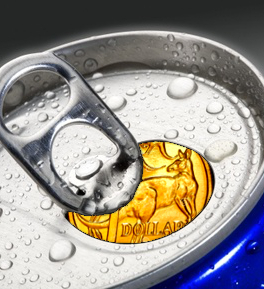Drink tax push continues
 Obesity experts say that if we have controls on alcohol and tobacco, we should have them on sugary drinks too.
Obesity experts say that if we have controls on alcohol and tobacco, we should have them on sugary drinks too.
Leading obesity researcher Professor Stephen Colagiuri says a ‘sugar tax’ should be a key strategy to help individuals moderate their sugary beverage intake, in much the same way as current alcohol, tobacco, and road safety measures are justified for preventing harmful behaviours.
“Individual rights can be equally violated if governments fail to take effective and proportionate measures to remove health threats from the environment in the cause of improving population health,” he said.
“In this respect, an SSB [sugar-sweetened beverages] tax is best compared with alcohol taxes, since alcohol is also not uniformly damaging, with health harm usually related to heavy or excessive consumption, while limited consumption may pose little health risk.
“Food products such as SSBs were not primarily developed to cause harm, but when harm is demonstrated it is often denied or challenged by those with vested interests.
“The excessive consumption of SSBs – a high energy dense discretionary food with no nutritional benefit, which can harm health – cannot be justified.”
With two in three Australians currently overweight or obese, existing education campaigns and preventive interventions focused on voluntary individual action have failed, exacerbated by an increasingly obesogenic environment, Professor Colagiuri writes in a new paper.
The United Kingdom will begin taxing SSBs from 2018, with high-profile advocates including celebrity chef Jamie Oliver urging the Australian government to follow suit.
Last November, several influential doctors’ groups called for the tax, and Greens leader Senator Richard Di Natale outlined his party’s commitment to a 20 percent ‘sugar tax’ on soft drinks in June, delivered as part of an obesity summit at the Charles Perkins Centre.
Since then the debate has fizzled out, with neither major party outlining a coherent approach to the issue following the federal election.
“In the face of the powerful industry lobby, governments are reluctant to take decisive action, opting for ineffective soft options. Voluntary action alone will not solve this problem. There are numerous examples of government health interventions which are accepted by the public, despite strong industry opposition,” Professor Colagiuri said.
Professor Colagiuri pointed to successful examples in Mexico, where a SSB tax initiated in 2014 resulted in a 12 percent reduction in purchases of taxed beverages and a four percent increase in untaxed beverages, mainly bottled water.
“A SSB tax will encourage people to shift to a healthier diet by reducing their consumption of sugary beverages, and shifting to untaxed healthier substitutes. It might also incentivise industry to reformulate to reduce the sugar content of SSB products,” he said.








 Print
Print